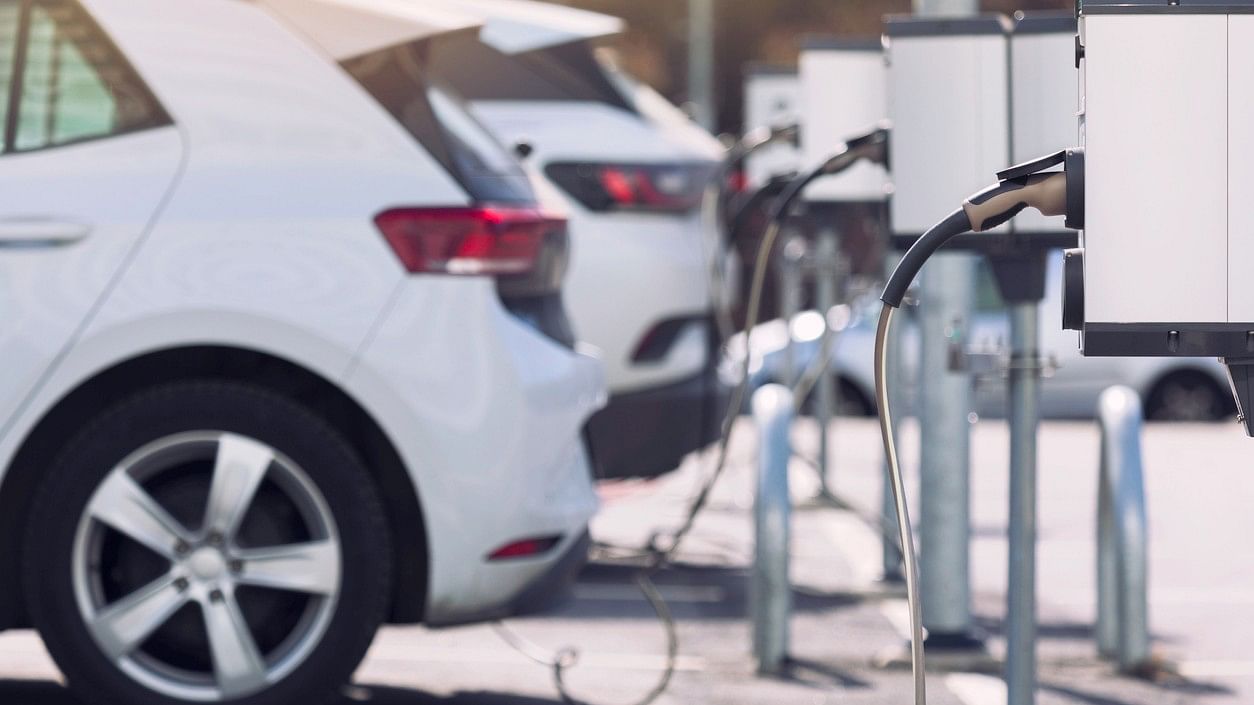
Representative image of EVs
Credit: iStock Photo
The past year saw bumper sales of electric vehicles in India as their registrations amounted to 15,29,614 units, up 49% from 10,25,123 EVs registered in the previous year, according to data on Vahan, the Centre’s vehicle registration portal.
Two-wheeler sales continued to drive a majority of registrations at 8,59,198 units. However, a larger growth in numbers was seen in four-wheelers, which surged to 72,625 registrations from 33,232 in the previous year, marking an increase of more than 118%.
Registration of electric three wheelers, which are mostly used by commercial players like fleet operators, also went up from 3,50,244 units in 2022 to 5,82,527 units in the previous year.
Some 9,270 ‘light’ passenger vehicles, 3,003 e-goods vehicles, 2,592 e-buses, and eight tractors were also registered in 2023, along with 277 EVs in the ‘others’ category. As many as 114 electric vehicles were registered in the previous year that fell in categories that are yet to see significant uptake.
Out of the total number of EVs registered in 2023, 1,52,324 were in Karnataka, making up for almost 10% of overall sales in the country.
And industry insiders say that expansion of charging infrastructure, and the continued support of the government towards the sector bodes well for 2024. “This year, India saw a record-breaking year-on-year growth in EV sales, fueled by a potent mixture of factors. Government incentives, coupled with rising fuel prices and growing consumer awareness, have paved the way for an EV revolution,” said Dinesh Arjun, co-founder and chief executive officer of e-motorcycle startup Raptee Energy.
Experts say that despite EVs being heavier on the pocket in terms of upfront cost, a big driver in India is the low total cost of ownership they provide in the long term, which is optimum for fleet operators and delivery services that have been feeling the pinch of expensive fuel rates.
The expansion of India’s charging infrastructure, improving battery technology, along with continued government incentives, are expected to continue this accelerated growth in the next year.
“The Indian government’s ambitious plans, coupled with private sector participation, are accelerating the deployment of charging infrastructure, thereby addressing one of the key challenges in EV adoption,” said Raptee’s Arjun.
Manufacturers are already changing their strategies to attract a larger consumer section towards electric mobility. According to experts, 2023 saw original equipment manufacturers (OEMs) launch a number of affordable models, especially in the 2W category and the introduction of even more cost-effective models targeted at the mass market is expected in 2024.
“With reduced government subsidies, there will be a dual focus on streamlined, entry-level EV models and high-end variants with advanced features. The electric motorcycle segment is expected to witness a surge, intensifying competition in the 2W EV space, with established internal combustion engine manufacturers making forays into the electric market,” according to Sumeru Shah, business head of EV two-wheeler at green financier Ecofy.